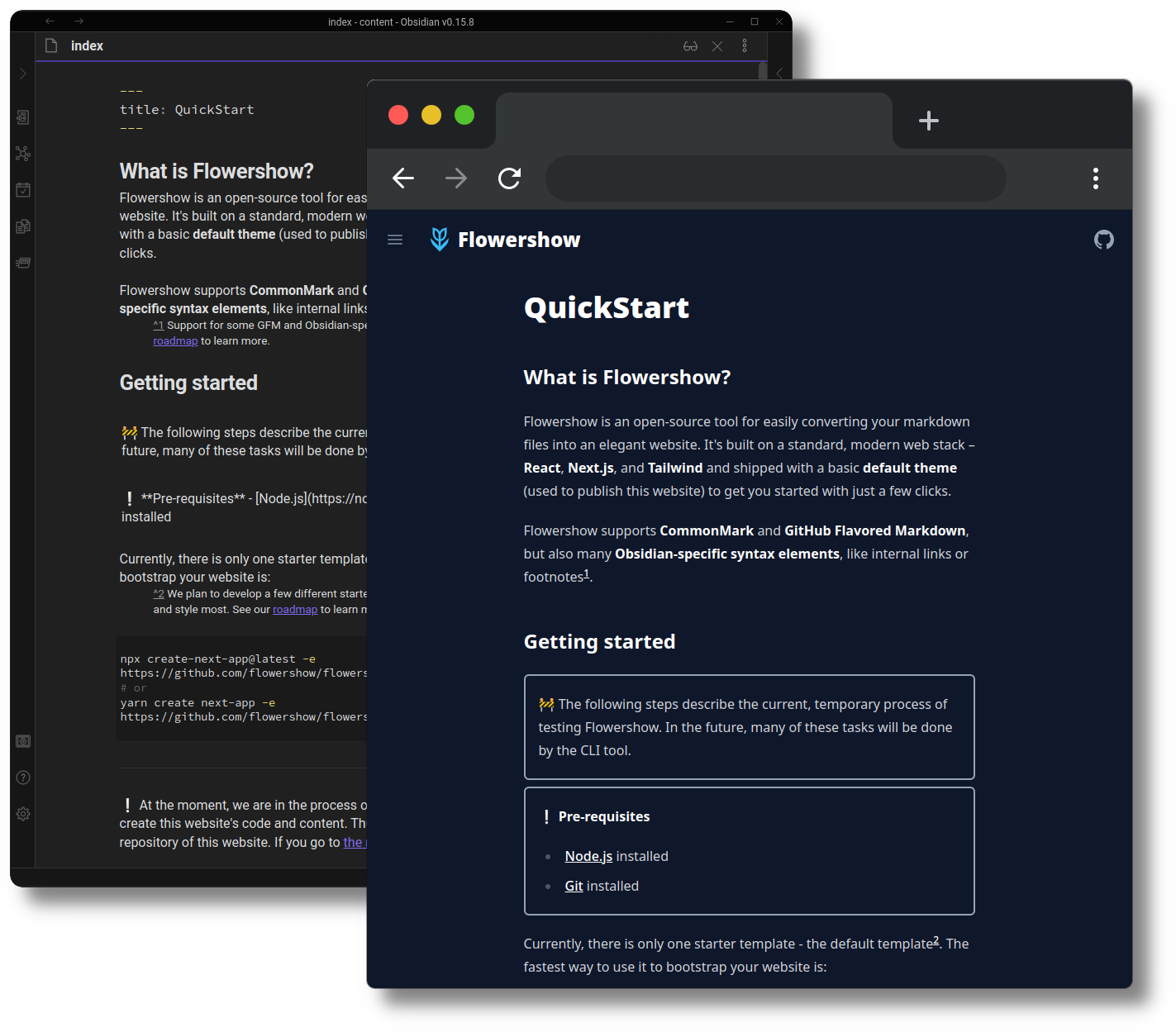Publish your Obsidian notes (or any markdown), beautifully. For free, no coding.
Flowershow is an open-source tool for easily converting your markdown files into an elegant website. It's built on a standard, modern web stack – React, Next.js, and Tailwind and shipped with a basic default theme to get you started with just a few clicks.
- Crafted for Obsidian, Flowershow works with your Obsidian vault out of the box. No need to modify the syntax or change the file layout. If you're not an Obsidian fan, Flowershow can be used with any CommonMark or GFM files.
- Elegant and functional default theme with basic front page and navbar.
- Easy to tweak and extend with custom page layouts and custom React components, that can be used within your markdown.
- Backed by a team of data geeks, who love Markdown, and are passionate about sharing knowledge and ideas with others.
For full feature list see https://flowershow.app/#features
You can use this template together with the Flowershow Obsidian Plugin. See the README in the plugin repo for information on how to set it up.
With Vercel:
https://github.com/flowershow/flowershow/discussions
Come find us on Discord: https://discord.gg/cPxejPzpwt
If you want to contribute, you are more than welcome! You can start by checking our project backlog.
If you have an idea for improvement, and it doesn't have a corresponding issue yet, simply submit a new one.
If you'd like to work on an existing issue:
- Fork the main repository.
- Clone the forked repository to your machine.
- Create a feature branch (e.g.
50-update-readme, where50is the number of the related issue). - Commit your changes to the feature branch.
- Push the feature branch to your forked repository.
- Create a Pull Request against the original repository.
- add a short description of the changes included in the PR
- Address review comments if requested by the reviewers.
